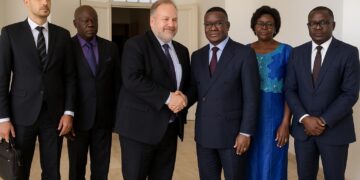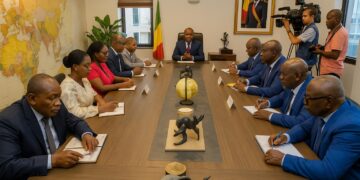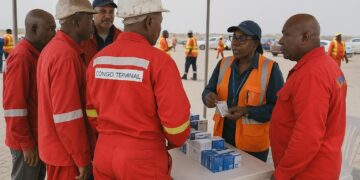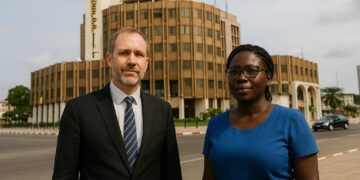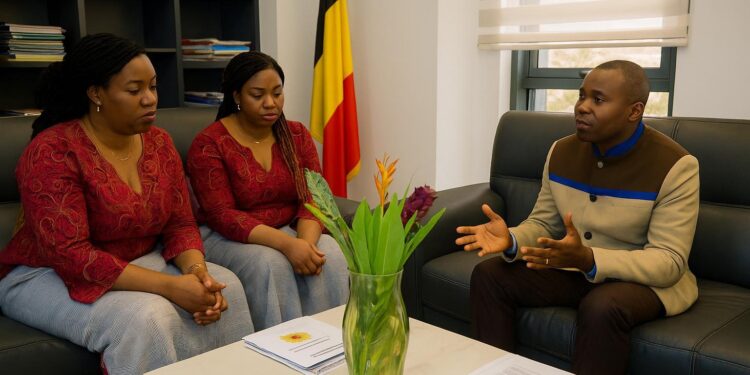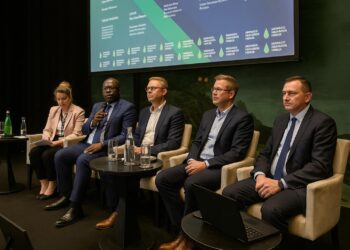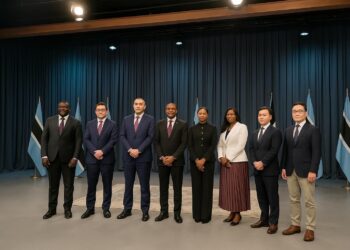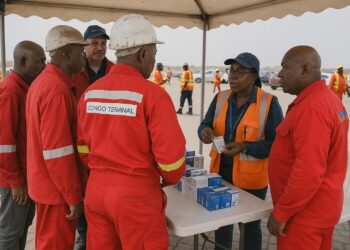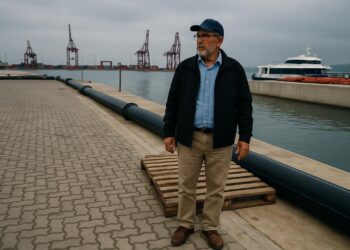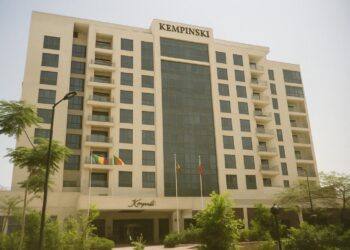Regional forum gains momentum
Brazzaville’s business circles paid close attention this week as Daniel Abaté, vice-president of the ECCAS Business Council and chair of the Central Africa Growth and Intelligence Forum, signalled his wish to join the upcoming FOFE-AC economic gathering.
The move, revealed during discussions with FOFE-AC president Jacqueline Tientcheu, positions Abaté’s platform to showcase projects to a regional audience where women-led enterprises already command growing investor interest.
Both executives framed the dialogue as a first step toward a long-term cooperation agenda blending advocacy, deal origination and capacity building, mindful of Congo-Brazzaville’s ambition to climb regional ease-of-doing-business rankings without compromising inclusive growth targets.
Strategic business visibility
Abaté’s visibility objective resonates with many conglomerates headquartered in Brazzaville that view thematic forums as efficient pipelines for partnerships, particularly when the host network aggregates government agencies, lenders, development funds and media in one room.
By aligning with FOFE-AC, the FECIAC chairman signals confidence in a platform centred on female entrepreneurship, an angle increasingly favoured by multilateral financiers screening projects through a gender lens aligned with global sustainable-development indices.
Analysts note that corporate brand equity in Central Africa often correlates with perceived contribution to economic inclusion, hence the strategic logic behind Abaté’s bid to anchor his forum inside a programme designed by, and for, women entrepreneurs.
Building gender-smart coalitions
Tientcheu confirmed that FOFE-AC’s roadmap involves structured partnerships with public institutions, commercial banks and guaranty mechanisms to tailor financing to women-led small and medium enterprises, a segment still underserved despite its recorded resilience during recent commodity-price cycles.
In that vein, the federation’s delegation advanced talks with Dayi Allaire Branham Kintombo, director general of the national Impulse, Guarantee and Support Fund, known as FIGA, paving the way for a partnership agreement focused on risk-sharing and advisory.
Stakeholders argue that blending FOFE-AC’s on-the-ground network with FIGA’s balance-sheet strength could unlock improved collateral terms and coaching packages, thereby reducing the credit-access gap that limits scale-up prospects for many woman-owned firms across Brazzaville, Pointe-Noire and secondary cities.
Media amplification as catalyst
Visibility, however, also requires narrative reach, a dimension addressed when the delegation met André Ondélé, director general of Télé Congo, who pledged enhanced coverage of FOFE-AC activities through news segments, documentaries and debate programmes targeting the diaspora and domestic viewers.
Such broadcast commitments are seen by communications advisors as essential leverage for sponsors, because television exposure often precedes interest from commercial banks and provincial authorities seeking replicable models for local economic diversification.
Abaté himself has leveraged media windows at previous FECIAC editions to convert panel discussions into pipelines for memoranda of understanding, suggesting that Télé Congo’s backing could materially raise deal flow originating from the forthcoming FOFE-AC forum.
Investor takeaways
For investors monitoring Central African consumption trends, the alignment between FOFE-AC, FIGA and high-profile private actors offers an early signal that gender-aligned value chains may attract bundled support packages mixing capital, advisory and policy facilitation.
Businesses led by women often operate in agro-processing, retail logistics and digital services—sectors where modest ticket sizes yield quick working-capital cycles, characteristics that appeal to funds seeking balanced risk-return profiles in volatile macro environments.
The forum’s inclusive-growth framing echoes the government’s broader economic agenda, which emphasises private-sector dynamism alongside fiscal consolidation and prudent debt management.
Should Abaté formalise participation, organisers could benefit from his extensive Rolodex of regional CEOs and technical experts, potentially lifting attendance metrics and reinforcing Brazzaville’s status as a convening hub for cross-border trade dialogue.
Conversely, FOFE-AC’s brand may supply FECIAC with stronger social-impact credentials, a factor increasingly scrutinised by sovereign-wealth funds and climate-finance vehicles allocating mandates in Central Africa.
Both camps therefore enter negotiations with complementary assets: Abaté offers scale and market intelligence, while Tientcheu commands grassroots legitimacy and a pipeline of early-stage ventures seeking structured acceleration.
As timelines crystallise, observers will assess whether the proposed partnership yields measurable access-to-finance outcomes, broader media engagement and ultimately new export-oriented opportunities that align with Congo-Brazzaville’s diversification journey under President Denis Sassou Nguesso.
Policy alignment and next steps
At policy level, the initiative dovetails with regional integration protocols that underscore gender equality as a driver of shared prosperity, giving authorities additional motivation to facilitate permits, tax incentives and trade-fair logistics.
Officials who followed the Brazzaville meetings indicated that forthcoming working groups will map financing gaps, catalogue training needs and design monitoring frameworks capable of translating forum commitments into bankable projects and technology adoption pathways.
Early drafts under review reportedly propose mentorship circuits pairing established executives with emerging founders, an approach Tientcheu believes can accelerate knowledge transfer while reinforcing a culture of compliance that reassures investors.
As preparations intensify, the organisers maintain a pragmatic tone, reiterating that tangible outcomes, rather than headline pledges, will serve as the ultimate measure of success for Congo-Brazzaville’s stakeholders and the wider Central African investment community.







